PlayStation player emissions down, BF6 optimisation benefits, AI & hardware news, & why games matter in a time of crisis – GTG Links 66

There's been a lot of news since the last links post, so this one turned out a bit longer than I anticipated. Let's get into it, no time to waste, this climate is not going to save itself!
Anti-enshittification: a solution to the game industry's woes?
Corey Doctorow gave a fantastic talk recently about his theory of tech enshittification at the Cloudfest conference. It's really worth watching. In one part argues that Europe should retaliate to US tariffs not with tariffs of its own, but by breaking the stranglehold US tech has on different parts of the global tech sector. At one stage he suggests Europe should launch its own games marketplace that takes a 3% cut rather than the 30% cut that Valve, Apple, and Google currently take. Now that would solve some of the financial problems that game developers have been having these past few years. And with a European organisation at the helm, I am quite sure we would get more transparent sustainability data as well. A win win for everyone (except Tech monopolists). Nice dream, isn't it? There's already GOG.com of course...
Sony’s 2025 Sustainability report is out
And along with it comes new GHG emissions numbers for the PlayStation ecosystem:
Total CO2 emissions in product use over the lifetime of all products sold in fiscal year 2024 were estimated to be approximately 10.22 million metric tons. Mainly due to reduced power consumption and sales of televisions and games, emissions decreased approximately 17% over fiscal year 2023. (p.120)
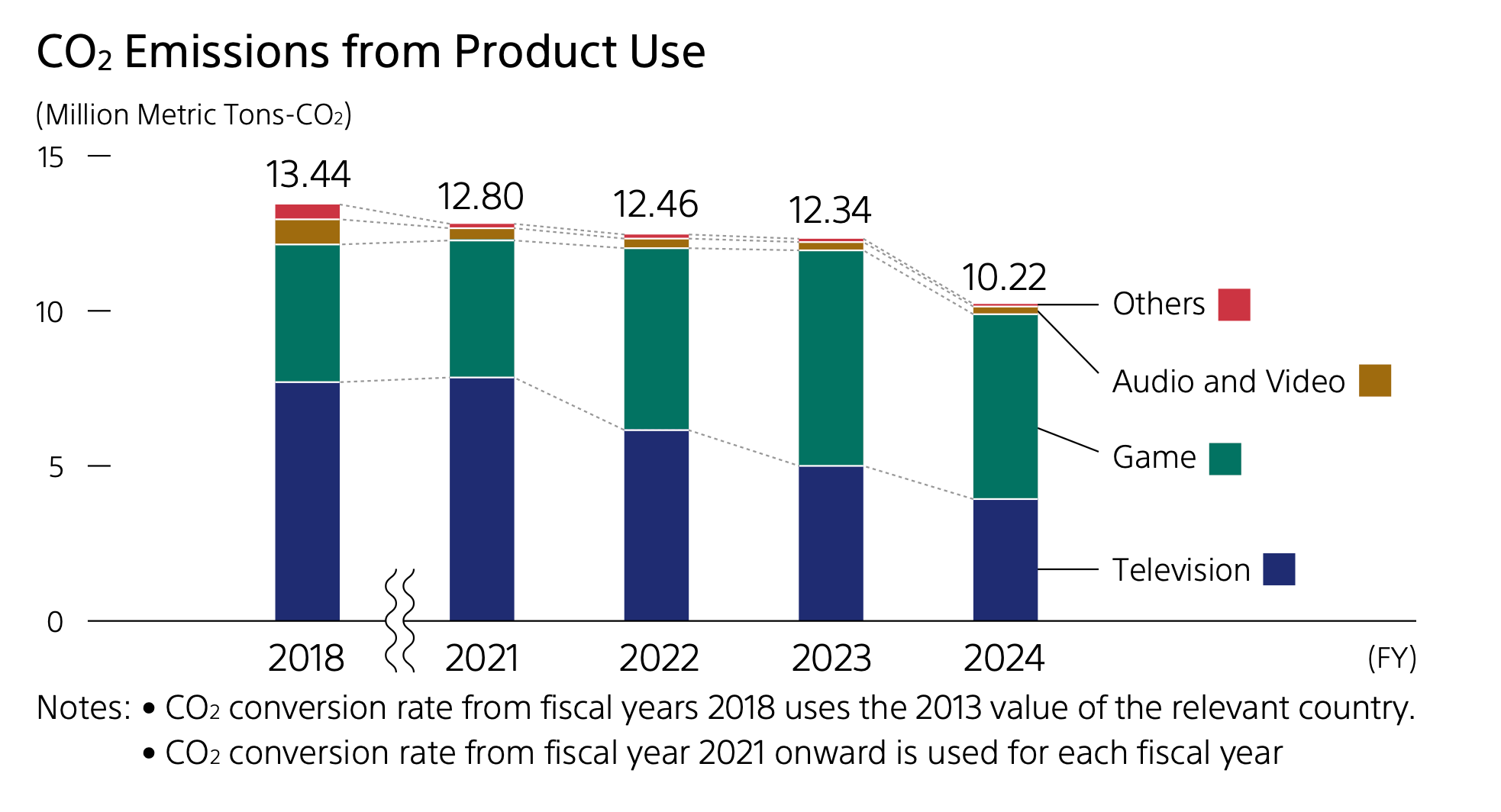
That's a pretty big drop! Explaining it as coming from "reduced power consumption and sales of... games" is interesting, as well. It suggests that Sony is still accounting for the full use-phase emissions of a console in the year the console is sold, rather than across the full multi-year lifespan of the device (which is not how I understand the GHG Protocol suggests to do things - and it's not the approach we're taking with the SGA Standard). They're not alone in doing this though, but it means less real-time information. But I can't seem to explain it otherwise, as I can't see how an increasing stock of total PS consoles (including the PS5 Pro!) would lead to a decreased flow of emissions (unless play hours are way down?). Will have to keep an eye on this one and have a bit more of a think about it.
Here's a nice diagram they made of the material flows across the Sony corporation though – fun! 5.96m tonnes of CO2 equivalent greenhouse gasses from PlayStation players in 2024.
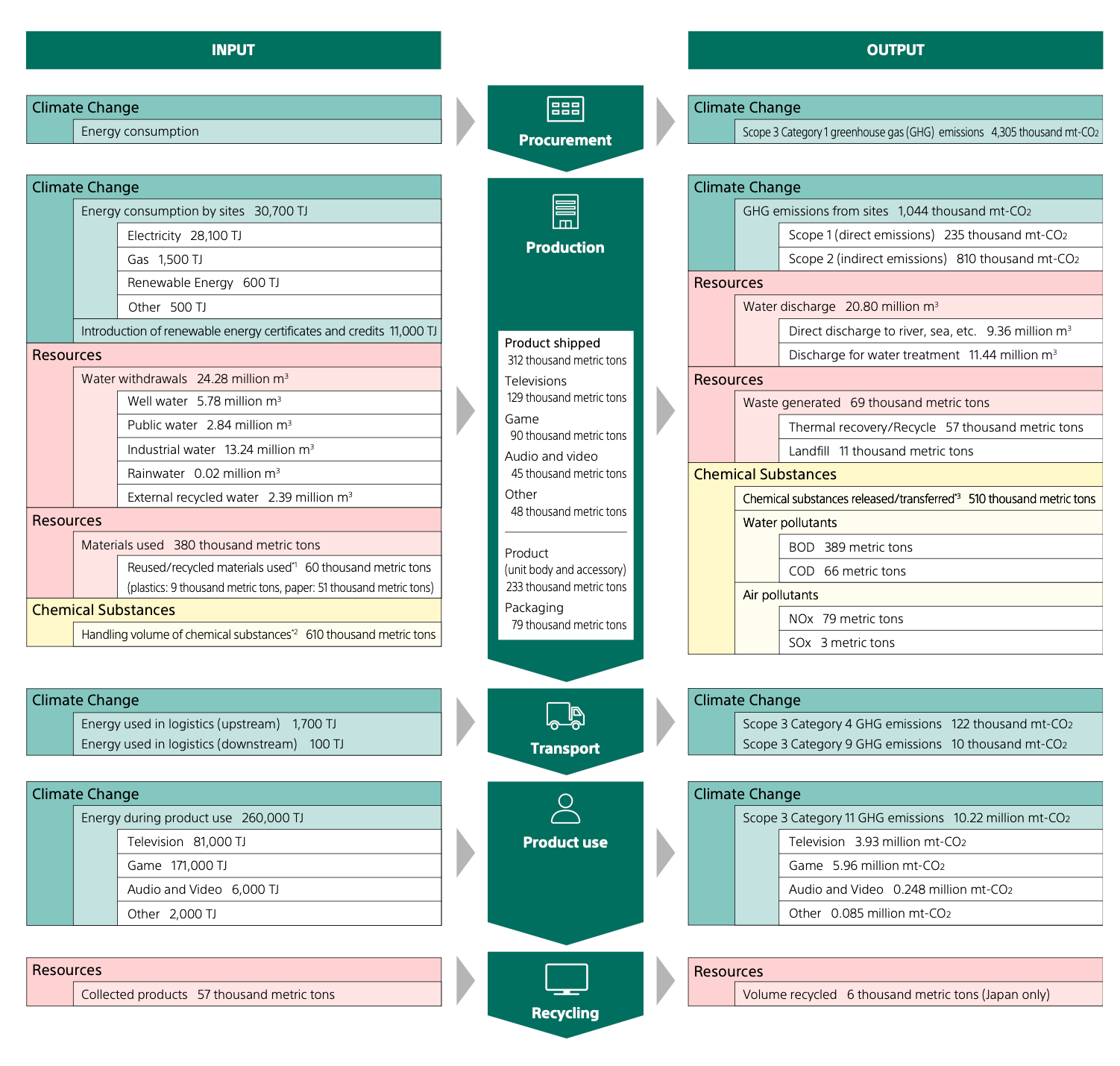
Check out the full report here. [PDF]
Game optimisation produces ancillary benefits
This is such a cool story, and reflects a growing awareness that optimising games for energy efficiency, for performance on low-spec devices, and other use cases presumably as well, has benefits that go beyond their initial target. Here, by optimising Battlefield 6 for the entry-level specs of the Xbox Series X, the game became more stable and efficient on all other platforms as well. Neat! We're planning to start a library of case studies like this with the SGA. Keep your eyes peeled for something like that soon.

New research: Social strategies to engage video gamers in climate action
It's only a short piece, co-authored by friend-of-GTG Marina Psaros, but it's in the Nature Climate Change journal, which is very prestigious and well regarded. Apologies for the text-heavy screenshots, but this was the best way to liberate the text from behind the nefarious academic paywall.
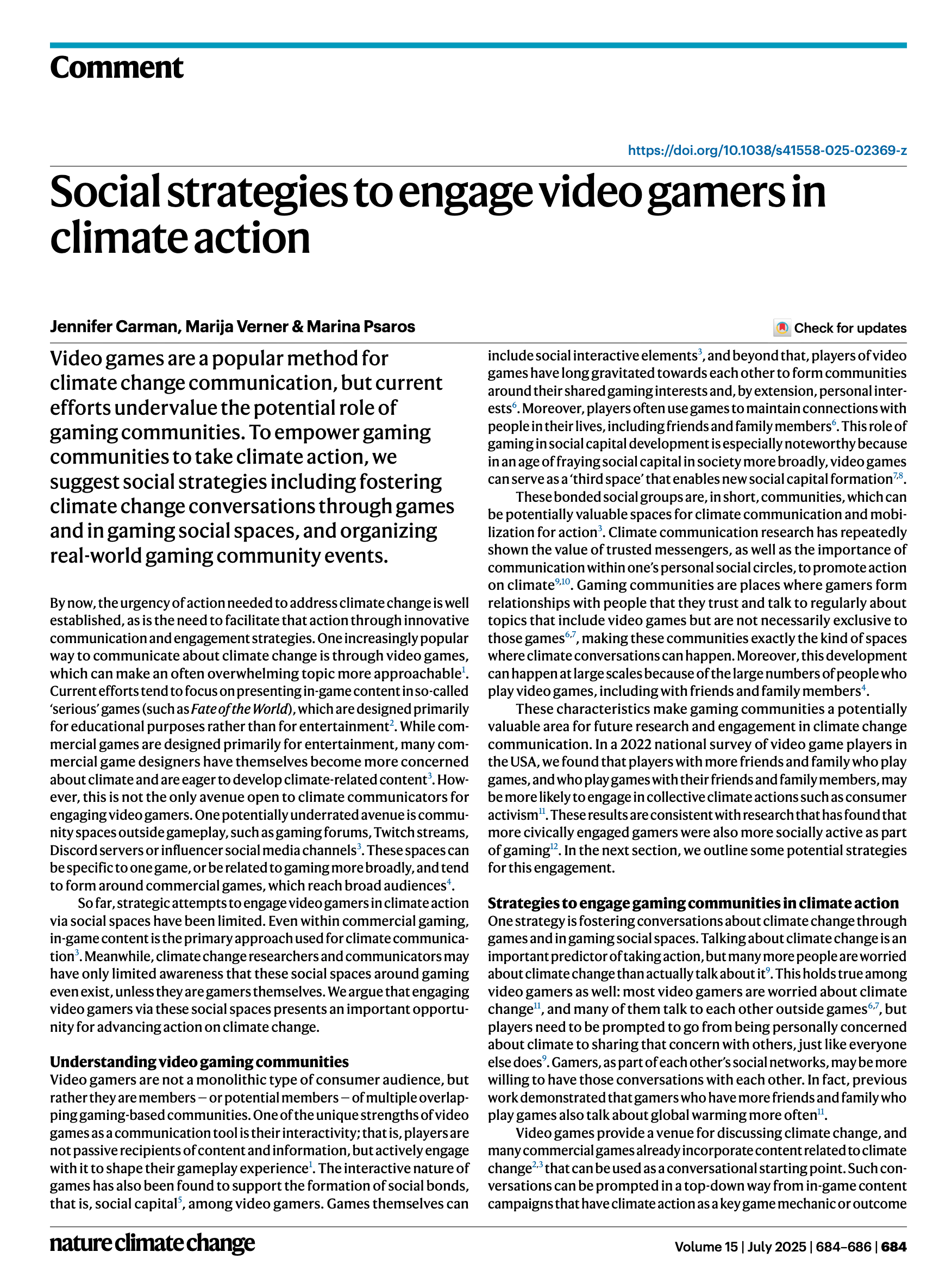
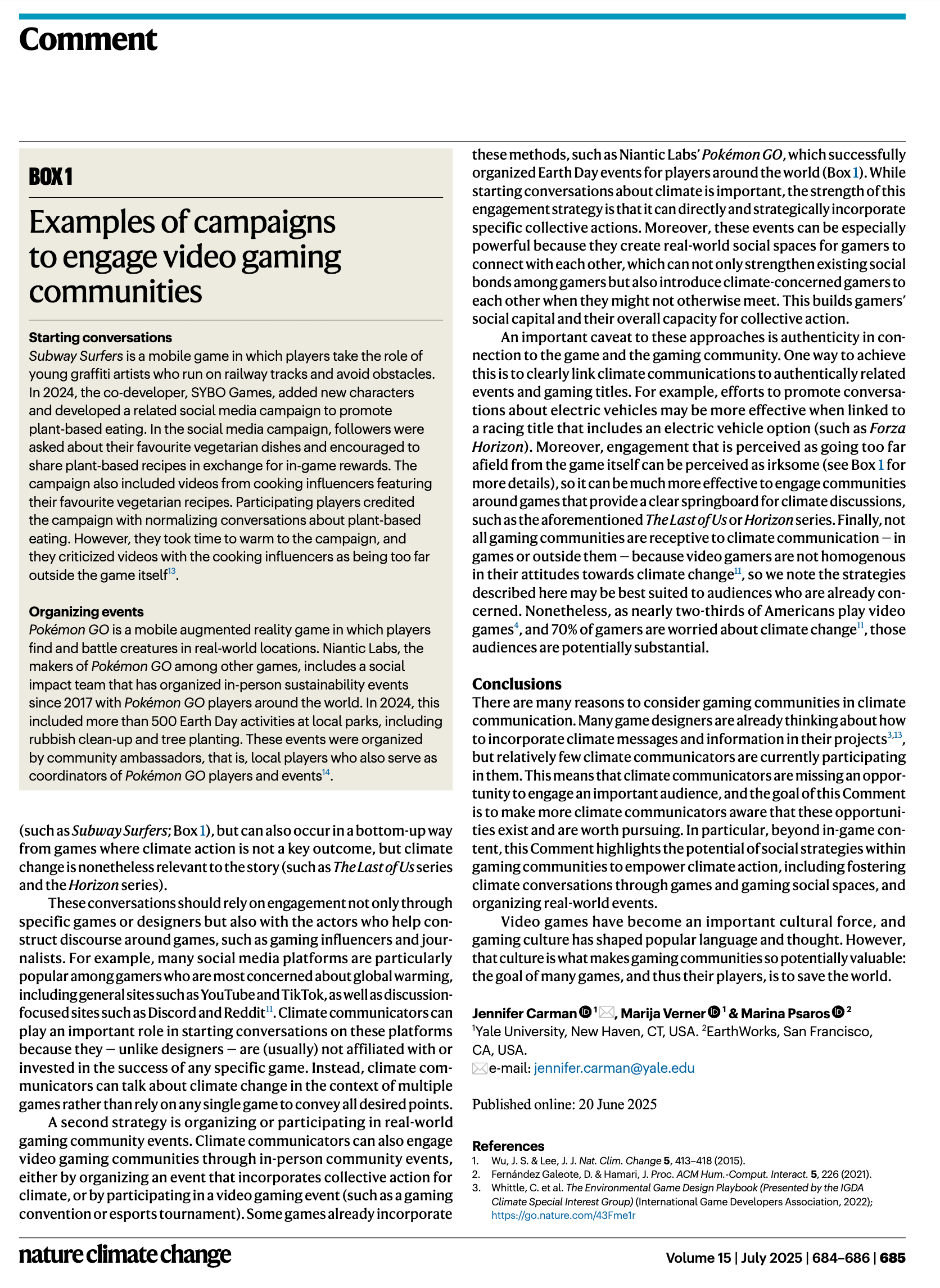
Nintendo doing 'tactical laziness'?
In this video, Linus Tech Tips discuss the Nintendo Switch 2's "locked down" USB-C port - which uses some sort of proprietary handshake protocol that makes it unable to output display data for non-official Nintendo docks. In the clip, they call it “tactical laziness”, as it prevents non-Nintendo docks from working with it and in turn may drive up sales of the new dock. Interesting analysis – we'll see if this changes eventually.
PS5 disc drives locked to their console?
I've been watching a lot of the YouTuber Joey Does Tech's repair videos lately. He fixes lots of second hand, broken game consoles with replacement capacitors and other micro-electronics work – he's got great energy, and is incredibly skilled, so if you want to learn how a broken game console can be repaired, and what it takes to do so, he's great.
In this video, he gets into the guts of a PS5 and tries to swap out disc drives, however he keeps running into some sort of hardware/software pairing or something, so the drives may be locked to the consoles they shipped with? I imagine this is an anti-piracy, DRM type protection? Anyway it's a real shame, because this is fascinating stuff. Check out the tiny amounts of money he makes by fixing them too – it's an absolute pittance! No wonder the world is drowning in ewaste.
US anti–sustainability politics: IFRS under attack by the SEC
The International Financial Reporting Standards are one of the world's most widely used financial reporting rules, managed by the IFRS Foundation and the International Accounting Standards Board. In recent years they've taken on responsibility for the International Sustainability Standards Board and it's work on the IFRS S1 and S2 climate disclosure standards that most of the countries in the world have aligned their national climates disclosures around. The IFRS is not a radical or activist organisation, by any means, it's the voice of capital markets and big institutional investors advocating for disclosures and transparency.
So I don’t imagine the IFRS has much wiggle room to respond to this latest attack by the US Securities and Exchange Commission which has, since 2021, allowed companies that report according to IFRS rules to be considered in compliance with US GAAP financial reporting standards. Now, the SEC (under the direction of the current US administration) has warned the IFRS that it doesn't like it's activities with the ISSB and its sustainability rules – part of the latest anti-ESG attack in the United State. But the trouble is, even if the IFRS were to cave to the SEC by disbanding the International Sustainability Standards Board, it would be largely irrelevant to an increasing number of countries already following the IFRS S1/S2 reporting rules. So what would even be the point? The IFRS and ISSB would simply be giving up on the idea of harmonization of disclosure rules internationally, as without Govt adoption, these standards are all voluntary anyway. And the rest of the world is already well underway with the alignment process to IFRS S2... so all that is likely to happen is that the SEC is about to make complying with US GAAP rules much harder and more complex. Make that make sense...
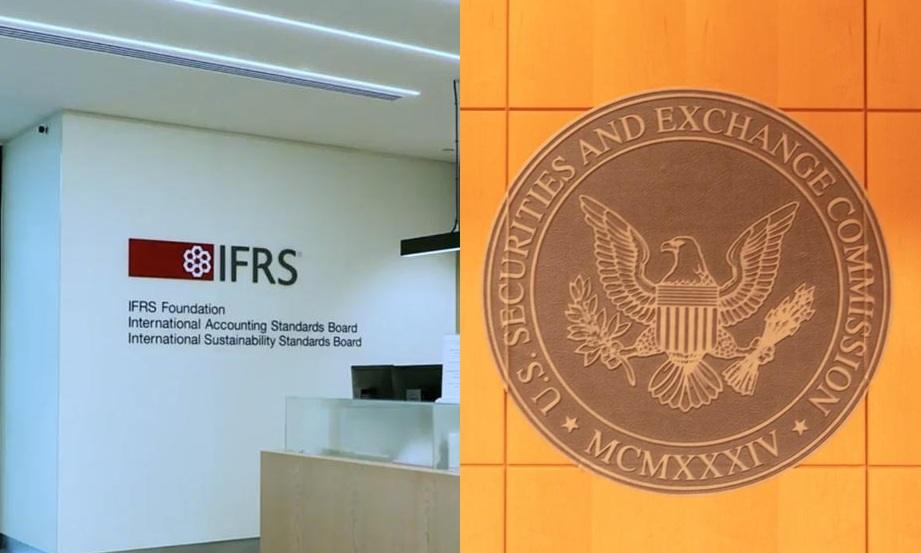
Hardware sufficiency: you're hearing it more and more

Jensen Huang (Nvidia CEO) says Britain must kill the planet to power the AI revolution
Nice for him to say it so clearly. Sure would be a shame if the AI bubble popped and everyone sold their Nvidia shares and Jensen Huang had to retire in disgrace. Yep, that'd be a real shame.

And while we're talking Nvidia – Here’s the research paper behind that LCA of the H100.

Google quietly de-emphasising 2030 net zero pledge
I’ve seen this reported as “removes its pledge” but I’m not sure that’s right. It does seems like it’s starting the process of downplaying or minimising it at least, since Google is (potentially) about to miss the target, like many other big tech companies. Perhaps somebody should do something about that instead of just managing the perception of it? Just a thought!

Data Centres pushing up consumer electricity prices in US states
I wonder who could be responsible for this?????? Does anyone know the culprits??????
Teaching AI ethics
New chapter by researcher friends-of-GTG on teaching AI Ethics in educational settings. Looks good!

The new 'methane risk map' is excellent
Mapping the risks of major methane releases across the United States. 110 childcare facilities, nursing homes, and prisons within 2 miles of a major methane release event! Bad!!

There's a good write-up of how and why it was created on Heatmap.
Solar cells can be tuned to indoor light???

Insurance and climate risk
Really good analysis in the Polycrisis newsletter this week. There has been a pervasive narrative for some time now that climate risk could lead to a huge new financial crisis, a climate time bomb like the 2008 sub-prime mortgage crisis, since declining asset prices were a big part of the problem in that giant financial crisis.
But the story that Tim and Kate outline here is more complex, with big insurers more likely to (and already beginning to) manage the slow but inevitable retreat from an increasing number of climate-exposed zones. The result is less likely to be massive systemic financial instability, and more the picking-off of individual communities who are to be sacrificed in the name of unprofitability, uninsurability and the continuation of fossil fuel based economies:
At stake is not the narrow insurers’ view of the “pooling of risks” or a dramatic wake-up moment of a doom loop prophesy, but rather a citizenry bound in “communities of fate” and the moral economy of the welfare state. The politics of insurance, Rebecca Elliot has argued, is ultimately about “what is fair and valuable, what needs protecting and what should be let go, who deserves assistance and on what terms, and whose expectations of future losses are used to govern the present.”
It's a sobering analysis, and should be a wake-up call to governments who are make their new NDC climate commitments as part of the Paris Agreement process this year.
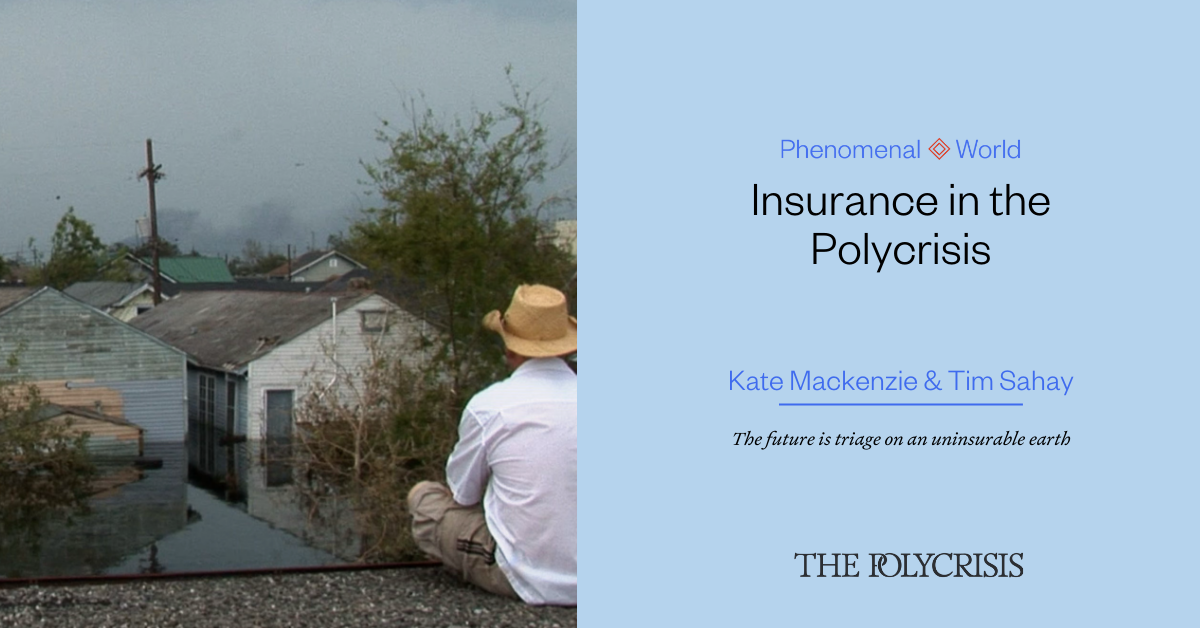
Socialism and the climate crisis
Jason Hickel in fantastic form here, outlining the necessity of democratic and social control over production if we are to reign in the forces of fossil capital:
This may be difficult for some to come to terms with, but it is vital that we understand this reality and develop strategies accordingly; otherwise, we are heading for certain failure. And on this issue, failure is not an option. The key thing to understand is that the climate crisis — and the ecological crisis more broadly — is 100 percent a problem of the production system. It has everything to do with who controls output, what they produce, and how they use energy and resources.
Under capitalism, production is highly undemocratic. Of course, many of us live in democratic political systems, where we get to elect government leaders from time to time, even if we acknowledge that these systems are corrupt and inadequate. But when it comes to the economy, the system of production, not even a pretence of democracy, is allowed to enter. Production is controlled overwhelmingly by capital: the big banks, the major corporations, and the one percent who own the majority of investible assets.

I almost didn’t register this one, since it’s almost become routine - but the great barrier reef underwent the worst coral bleaching in almost 50 years last year. And that's after several previous years of bleaching events.

Might be time to visit before its gone, if you've ever thought about it. I went in early 2019 and it really is remarkable, even the less spectacular bits. It will be an immeasurable loss when its substantially degraded, or gone. I don't even really want to joke about it. It's just fucked up and sad.
You might have missed this too? Pakistan flooding again has affecting 4 million people. Not much coverage of this, with all the other stuff going on.
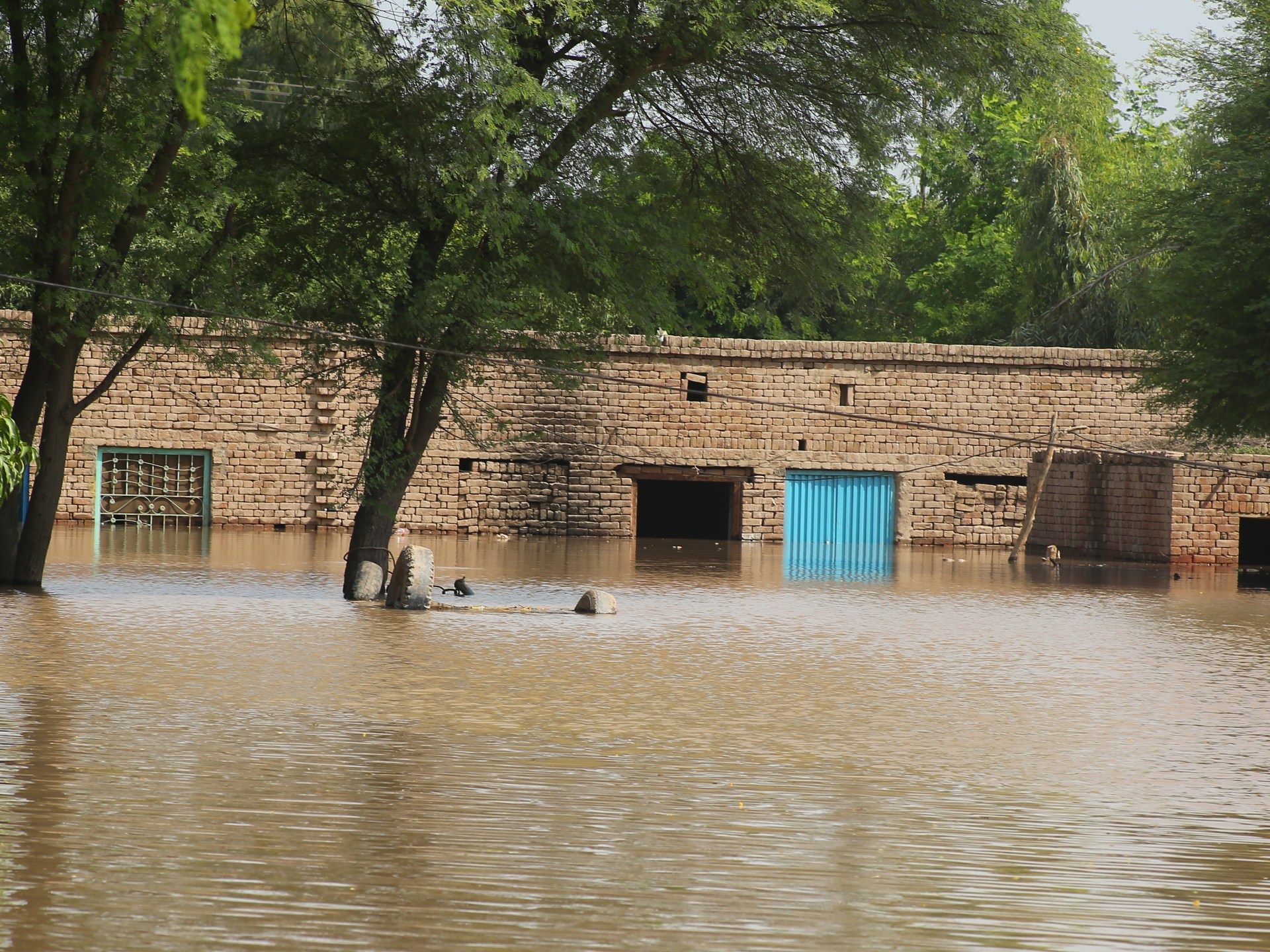
Let's end on a bit more of a positive note...
Christian McCrea on Why Games Matter in a Time of Crisis
I really, really liked this perspective on game-making:
Like you, I believe computer games are fundamentally noble at their core. That they divert the computer from the evil forces of busy work and the Web and social media. Like you, I know that play is a fundamental and even missionary good. Like you, I believe that computer games are the most noble use of the computer. Of the electricity you use.
…
You are answering a fundamental, atomic and subatomic question of what the electrified rocks in our phones and computers should be doing next to our bodies. You are saying: something good.

Thanks for reading GTG! We're fast approaching the launch of V1.0 of the SGA Standard – more on that in a future newsletter. Get hype!









